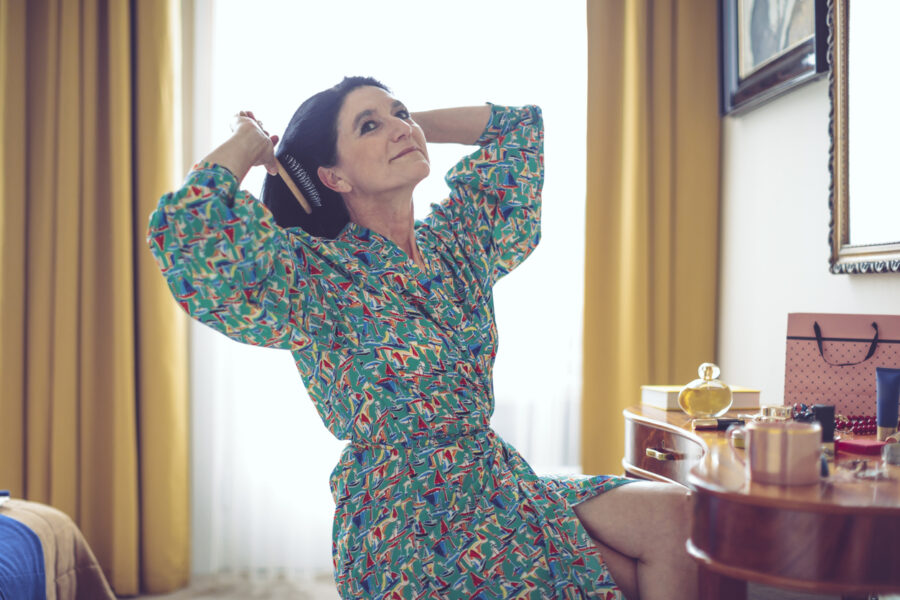Scalp care is an important part of caring for our hair — but it’s often overlooked. Here’s why it should be included in your next self-care day.
How often do you think about your scalp a day? What about a week? A month? It’s something most of us barely bat an eyelid over, until we’re having our hair washed at the hairdressers and feel soothed into near sleep.
But your scalp is important — it works unrelentingly to encourage hair growth and regulate oil production. And it deserves more than a simple half-hearted massage when you shampoo. Cult Beauty has seen ‘scalp’ searches increase by 196% in the last year. So if you’re looking for a sign to dive into the world of scalp care, it’s here.
All good hair starts with a cared for scalp. Scalp care isn’t just reserved for those suffering from dandruff or psoriasis — it’s for everyone. Itchy or flaky scalps can cause or even worsen hair loss for some of us. What’s more, if you’ve ever experienced an itchy scalp, you’ll know how the scalp needs some TLC too.
Like the skin on our face, our scalps can age too — which leads to dull, thinning hair and even hair loss. But there are methods to help soothe and treat our scalps.
Use a scalp treatment
When it comes to scalp care, it’s worth noting that your hair’s structure is comprised of two parts. The hair fibre, which is visible and can experience the effects of environmental or weather damage, and the hair blub on the dermis level.
The hair bulb is where your hair is produced, so in theory, bringing active ingredients to the scalp you can boost the hair for better locks. No matter your scalp status (dry, itchy, oily or flaky) you need to look after it. If it’s been a while, give your scalp a refresh with an exfoliating tonic or mask, to help remove product build up. Massage the mask in deeply, to improve blood circulation and remove all product build up.
Aim for sulphate-free shampoos, as sulphate-laden shampoos can be harsher on the scalp.
You might be thinking — do I really need a scalp scrub? Think of it this way, your scalp is similar to your face. Even if you add no moisturiser or do your make up, when you cleanse at night you can find dirt or remove skin cells. Your scalp is the same. And with your hair covering the scalp, this can build up and cause irritation — and even damage hair growth.
Scalp conditions like psoriasis can cause discomfort and will need further investigation, either by a trichologist or dermatologist, if you’re feeling concerned. A few ‘red flags’ to keep an eye on is inflammation, pronounced redness, bleeding and heavy scaling.








